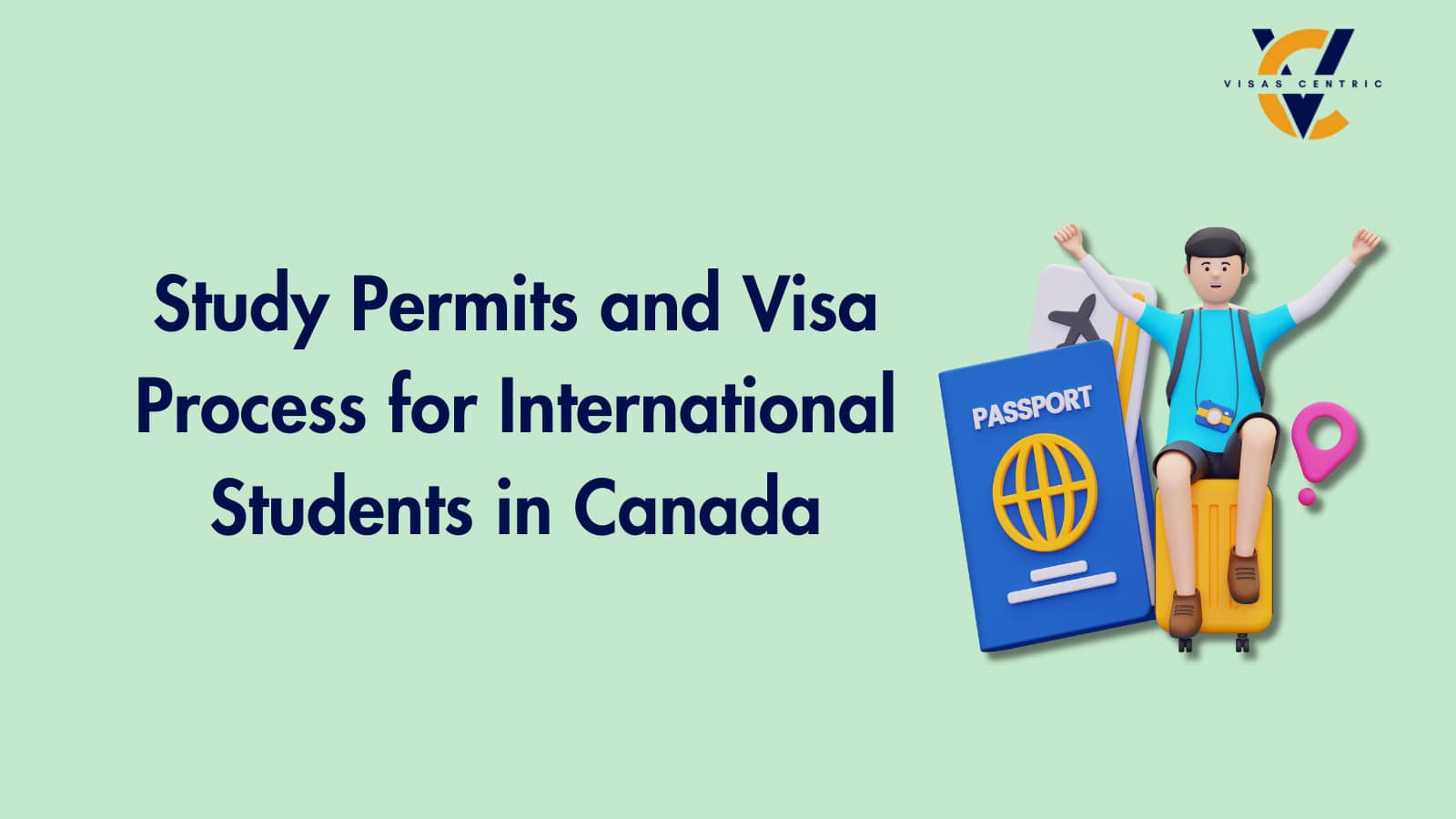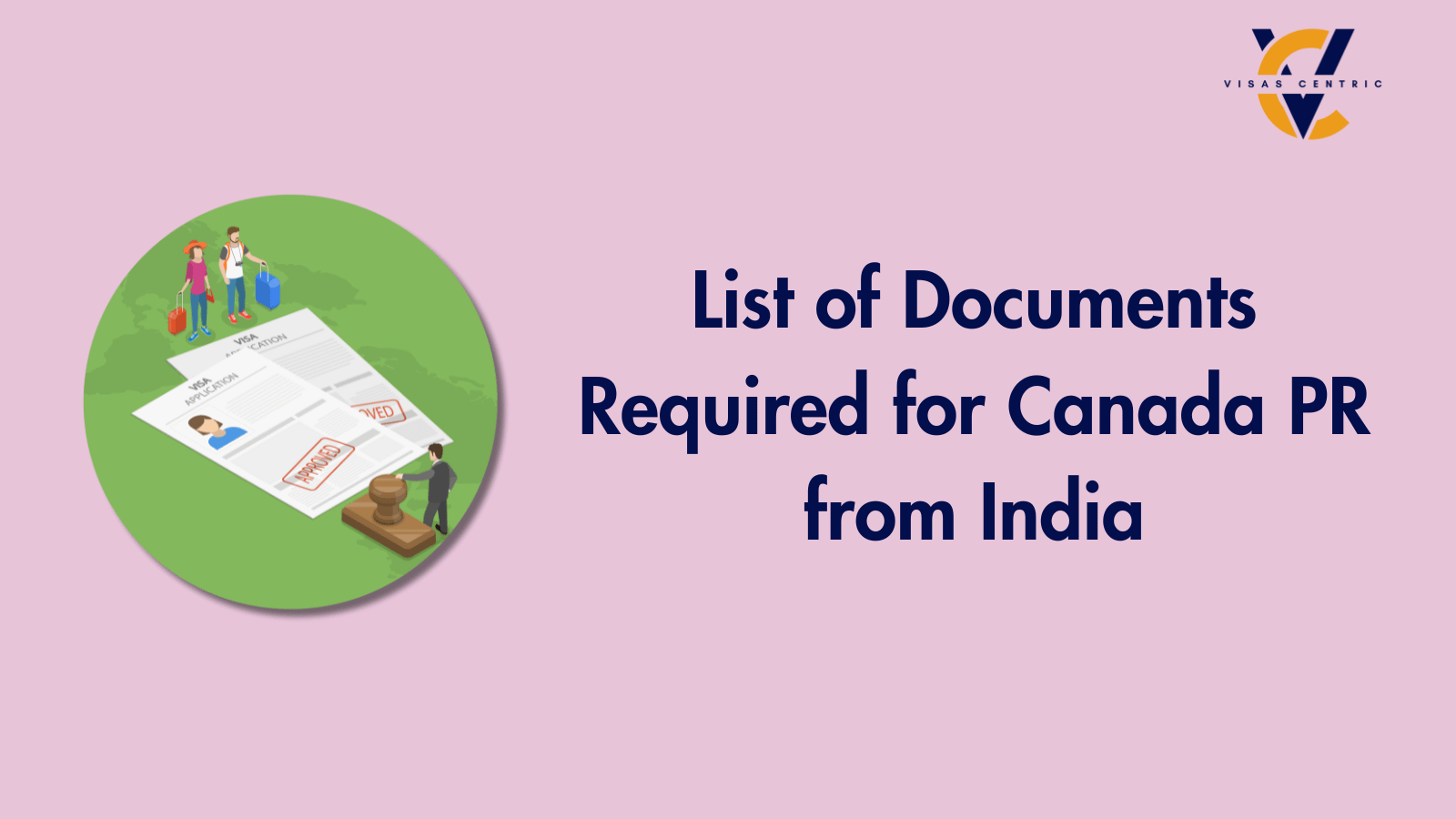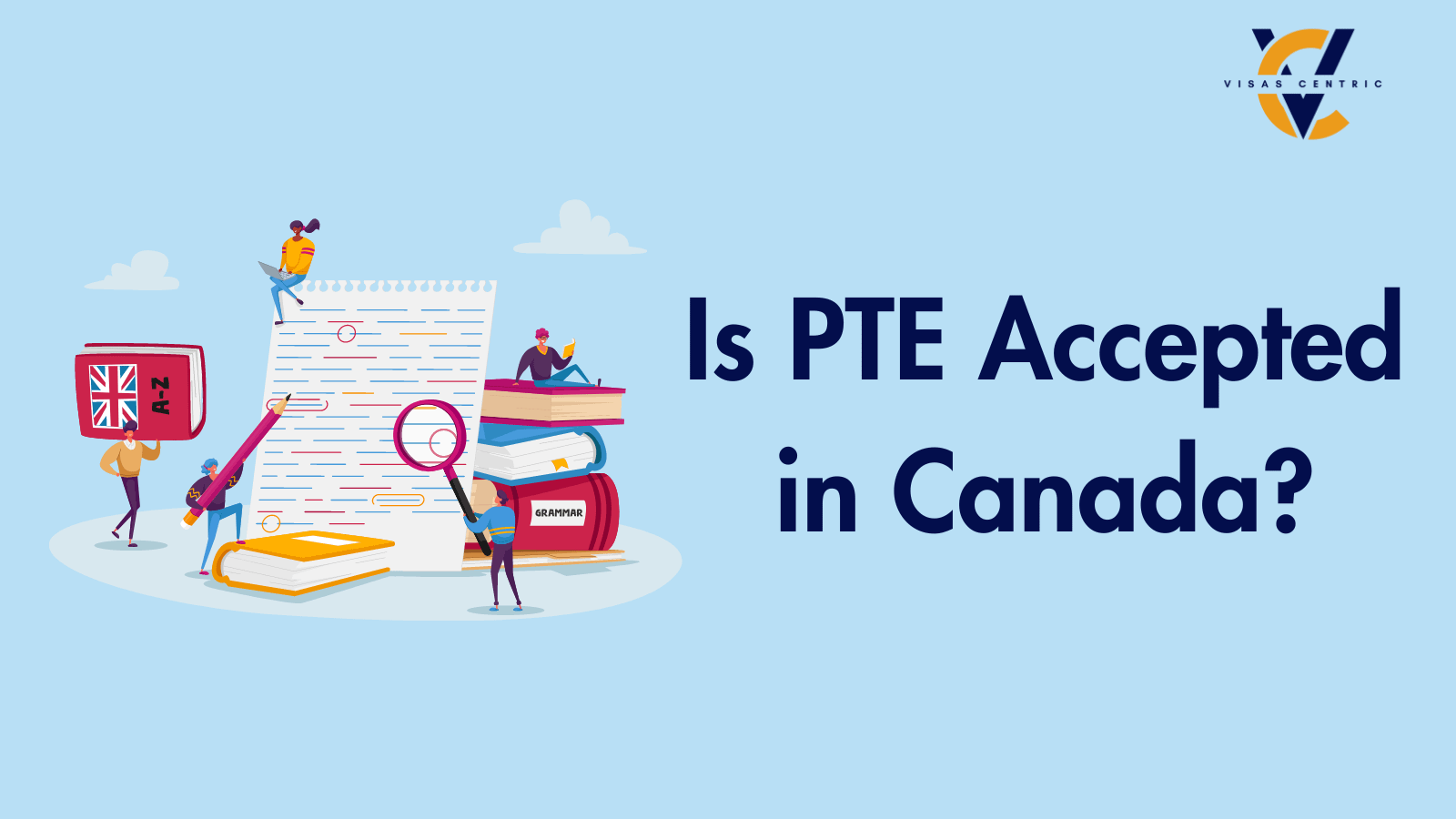Understanding Study Permits and Visa Process for International Students in Canada

- January 3, 2024
- 8 Minutes Read
Canada, renowned for its breathtaking landscapes and multicultural cities, also stands as a center for quality education. Each year thousands of students from around the world come to study in Canada. But before you pack your bags to start this amazing journey, understanding the study permit and visa process in Canada is important. As an international student, you might have some questions in your mind like what exactly is a study permit? How do I apply for a study permit? Do I need a visa or not? We aim to clear all your doubts in this detailed article.
Get in touch with us for Free Consultation
Why Choose Canada for Study?
Choosing Canada for your higher education is a decision that opens doors to a world of opportunities, diverse experiences, and top-tier education. Let’s explore why Canada stands out as an exclusive destination for international students.
Quality of Education
- Globally Recognized Degrees: Canadian degrees are valued worldwide, reflecting the high academic standards and rigorous quality controls in education.
- Research and Innovation: Known for cutting-edge research and innovation, especially in fields like medicine, technology, and environmental science.
- Supportive Academic Environment: Universities in Canada offer a supportive and inclusive environment, with a focus on student success and well-being.
Cultural Diversity
- Multicultural Society: Canada's multicultural ethos means you'll be studying in a society that embraces diversity and inclusivity.
- Learn and Grow: Being part of such a diverse community helps in developing a global perspective, crucial in today's interconnected world.
- Language Skills: Improve your English and French language skills, both key assets in the global job market.
Opportunities Post-Graduation
- Strong Job Market: Canada's robust economy offers numerous employment opportunities for graduates.
- Work While You Study: Canadian policies allow students to work part-time during their studies, providing valuable work experience.
- Pathways to Permanent Residency: Canada offers various programs for students to transition to permanent residency, a unique advantage for those looking to settle.

Understanding the Canada Study Permit
Understanding the study permit is very important before starting your application to study in Canada. It’s not just a document; it’s your key to unlocking a world of learning and opportunities in Canada.
What is a Canada Study Permit?
- A Legal Document: The Canada Study Permit is a legal document issued by Canadian immigration authorities. It grants you the right to study at designated learning institutions (DLIs) in Canada.
- Not a Visa: It's important to note that a study permit is not a visa. It doesn't grant entry into Canada.
Purpose of a Study Permit
- Access to Education: The primary purpose is to allow international students to pursue their studies at Canadian DLIs.
- Ensures Compliance: It ensures that students meet the requirements for international students in Canada, such as staying enrolled and making progress in their studies.
Study Permit vs. Visa: Understanding the Difference
| Aspect | Study Permit | Visa or eTA |
|---|---|---|
| Purpose | Specifically for studying in Canada at a Designated Learning Institution (DLI). | To enter Canada. Required for most foreign nationals. |
| Validity | Tied to the length of your study program, plus an extra 90 days to prepare to leave Canada or extend your stay. | Generally allows you to enter Canada for up to 6 months at a time. |
| Issued By | Canadian immigration authorities (IRCC). | Canadian immigration authorities (IRCC). |
| Conditions | Must be enrolled at a DLI and make progress in your studies. Cannot be used to enter Canada. | Must be used alongside a valid study permit to enter Canada. Type (Visitor Visa or eTA) depends on your country of citizenship. |
| Application Process | Requires acceptance from a DLI, proof of financial support, and other documents. | Requires an application separate from the study permit, often alongside or after the study permit is approved. |
Don't wait any further when we are here to handle the whole process.

Eligibility Criteria for a Study Permit
The path to gaining a Canadian Study Permit involves understanding and meeting specific eligibility criteria. Let’s break down these requirements to ensure your application is on the right track.
Enrollment at a Designated Learning Institution (DLI)
- First Step: Secure an acceptance letter from a DLI in Canada. This is non-negotiable.
- DLI Confirmation: Ensure the institution is on the list of DLIs approved by the Canadian government.
Proof of Financial Support
- Proof of Funds: Demonstrate you have enough money to cover tuition fees, living expenses, and return transportation.
- Types of Proof: Bank statements, scholarship letters, or financial sponsorships.
No Criminal Record and Health Requirements
- Stay on the Right Side of the Law: A clean criminal record is essential. You might need to provide a police certificate.
- Health First: In some cases, a medical exam is required to prove you're in good health.

Application Process for a Canada Study Permit
The study permit application process can be complex, but breaking it down into manageable steps makes it much more approachable. Let’s take a look at the step-by-step guide below:
Step-by-Step Guide
- Gather Your Documents: Before you start, make sure you have all the necessary documents.
- Complete the Application: Fill out the application form for a study permit. Be thorough and accurate.
- Pay the Fees: Application fees are part of the process. Ensure you know the correct amount and how to pay.
- Submit Your Application: You can submit your application online or at a visa application centre.
- Wait for Processing: Processing times vary, so plan accordingly.
- Provide Additional Information if Required: Sometimes, you might be asked for more information or an interview.
- Receive Your Decision: If approved, you'll get a letter of introduction and, if required, a temporary resident visa or an Electronic Travel Authorization (eTA).
Required Documents
- Acceptance Letter: From a Canadian Designated Learning Institution (DLI)
- Proof of Financial Support: Bank statements or proof of a Canadian bank account in your name, if money has been transferred.
- Passport: Ensure it's valid for the duration of your stay.
- Immigration Medical Exam (IME): If required.
- Police Certificate: If required.
Processing Times and Fees
The processing times for the application and fees can vary based on factors like your home country and application complexity.
| Country | Processing Time (Weeks) | Application Fee (CAD) |
|---|---|---|
| India | 12 – 16 | 150 |
| Brazil | 8 – 12 | 150 |
| France | 6 – 10 | 150 |
| China | 10 – 14 | 150 |
Understanding the application process for a Canada Study Permit requires attention to detail and patience. By following these steps and preparing your documents carefully, you’re setting yourself up for success. Remember, processing times can vary, so it’s important to apply well in advance of your intended start date.
Also Read: Canada Student Visa Fees in Indian Rupees
Tips for a Successful Application
Applying for a Canada Study Permit is a key step in your educational journey. To enhance your chances of success, here are some key tips to keep in mind:
- Double-check your Details: Ensure all information in your application is complete and accurate. Mistakes can lead to delays or even rejections.
- Consistency is Key: Information provided should be consistent across documents. Discrepancies can raise red flags.
- Show Sufficient Funds: Demonstrate that you have enough funds to cover your tuition and living expenses.
- Clear Financial Documentation: Provide straightforward, easy-to-understand financial documents. Any discrepancy can cause complications.
- Align with Your Goals: Choose a program and institution that aligns with your academic and career objectives.
- Research Thoroughly: Ensure the institution is a Designated Learning Institution (DLI) and the program meets the requirements for a Study Permit.
Also Read: Is PTE Accepted in Canada?
After Receiving Your Study Permit
Congratulations on receiving your Canada Study Permit! This achievement brings you one step closer to your academic goals in Canada. However, it’s important to understand the responsibilities and opportunities that come with your study permit.
Understanding the Conditions of Your Study Permit
- Stay Enrolled: You must remain enrolled at a Designated Learning Institution (DLI) and make progress towards completing your program.
- Respect the Duration: Your permit is valid for the length of your study program, plus an additional 90 days.
- Follow the Rules: Adhering to the conditions of your study permit is crucial to maintain your student status in Canada.
- Part-Time Work: As a study permit holder, you're allowed to work up to 20 hours per week during regular academic sessions and full-time during scheduled breaks.
- Gain Experience: This is a great opportunity to gain Canadian work experience and support yourself financially.
- Extension: If you wish to continue studying, you may need to extend your study permit. This should be done at least 30 days before your current permit expires.
- Changing Institutions or Programs: If you decide to change your institution or program, it must still meet the requirements of your study permit.
Also Read: WES Approved Universities in India
Don't wait any further when we are here to handle the whole process.

Transitioning from a Study Permit to a Permanent Residency
Transitioning from a study permit to a permanent residency visa in Canada is a dream for many international students. Understanding the pathways and the role of Canadian work experience can significantly enhance your prospects.
Exploring Pathways to Permanent Residency
Canada values the contribution of international students and offers various pathways to permanent residency. These pathways recognize the skills, education, and work experience that students bring to the Canadian workforce.
- Canadian Experience Class (CEC): Ideal for students who have gained work experience in Canada. This program is a part of the Express Entry system.
- Provincial Nominee Programs (PNPs): Many Canadian provinces have programs that nominate individuals for permanent residency based on specific criteria, including having studied in the province.
- Quebec Experience Program (PEQ): If you studied in Quebec, this program offers a pathway to permanent residency, considering factors like your education and work experience in Quebec.
The Importance of Work Experience in Canada
Gaining Canadian work experience is a crucial element in transitioning to permanent residency. This experience demonstrates your ability to integrate into the Canadian workforce and society. Working in Canada during or after your studies can:
- Enhance your language skills.
- Help you build a professional network.
- Increase your understanding of the Canadian work culture.
The journey to studying in Canada, though filled with paperwork and processes, is a path loaded with opportunities for personal and professional growth. It’s a journey that promises not just an education but an experience that shapes futures. At Visas Centric, we are committed to guiding you through every step of this journey, ensuring that your experience is as fulfilling and seamless as possible. Whether it’s choosing the right program, navigating the study permit process, or making the transition to permanent residency, we are here to support you in realizing your Canadian dreams.
Share :
A Study Permit allows you to study in Canada, while a visa or an Electronic Travel Authorization (eTA) is required for entry into Canada. The visa is your entry ticket, and the study permit is your permission to study.
To be eligible, you must have an acceptance letter from a designated learning institution, prove financial support, and meet health and character requirements.
Processing times vary by country and can range from a few weeks to several months. It’s important to apply well in advance of your intended start date.
Yes, you can apply to extend your Study Permit if you wish to continue studying in Canada. This should be done at least 30 days before your current permit expires.






